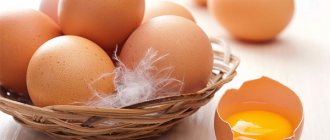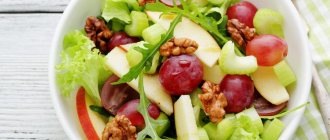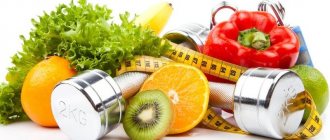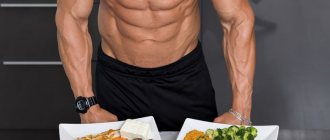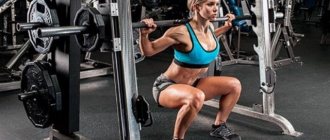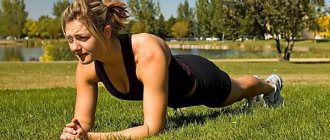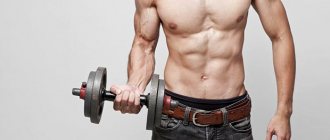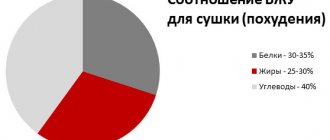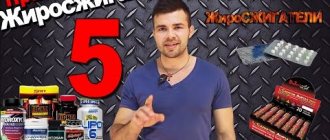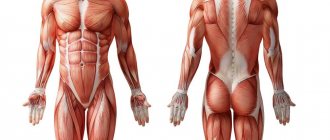Bodybuilding can be challenging. Indeed, constant fussing with containers, choosing the most anabolic products, and cooking will tire anyone. Success in building powerful muscles will be achieved by those who follow the KBZHU for gaining, and eat relatively healthy foods. At the same time, there is no need to go crazy and run for organic bulgur grown in the fields of a secret farm. Quite ordinary food can satisfy the body’s need for macronutrients and eliminate the need to take additional dietary supplements. It is only important to be able to combine it all, and not to forget to eat on time.
Benefits of Bodybuilding
It’s a paradox, but if competitive bodybuilding at a high level is far from the healthiest sport, then amateur bodybuilding is an excellent motivation to improve the condition of the body. A bodybuilding enthusiast trains regularly because his motivation is specific. He wants broad shoulders, a massive back, impressive legs, and defined biceps, and not just an abstract “feel good.” And it turns out better with nutrition. Few people are inspired by an abstract “burst of energy” to eat chicken breasts with broccoli and brown rice.
According to scientific research, moderate strength training and cardio reduce the risk of kidney disease, liver disease, heart disease, and metabolic disorders. Scientists also concluded that people who regularly perform aerobic exercise have a lower risk of dying from a heart attack. If a person does not undergo extreme cutting, does not regularly dehydrate for the stage, and does not uncontrollably take supplements and sports pharmacology, he will be healthier than the so-called “average citizen” who eats fast food and “home recipes” and does not exercise.
A balanced diet helps avoid many chronic diseases. A natural bodybuilder typically eats a healthy diet built around natural, macronutrient-rich foods. This helps him avoid many health problems.
Calorie and macronutrient needs
On average, a bodybuilder needs more calories and macronutrients than the average person his age and weight. The fact is that training must be provided with energy, which means the amount of carbohydrates for mass gain may be higher than the figures recommended for ordinary citizens.
While bulking, you need to eat about 15% more calories than usual. Muscle growth is an energy-intensive process; in addition to the cost of training, it itself increases calorie expenditure. If for “drying” this is a plus, then for “mass” you need to cover this difference. For example, if a bodybuilder’s normal calorie requirement is 3000 kcal, then for weight he will need to eat 3450 kcal.
Important : “bulk” does not mean that all the “new” calories can be obtained from chocolate muffins and chicken wings. Nutrition experts recommend either eating regular food and alternating types of grains, vegetables, and meats to get more macronutrients. If you can’t eat all the food you need, athletes can use gainers.
When switching to “drying”, the number of calories is reduced first by the same percentage, and then gradually reduced by another 10-15%. During cutting, an athlete can reduce his caloric intake by 1000 kcal or more from the mass gain figures. But these recommendations are just a diagram. In fact, the rate of fat loss is an individual indicator determined genetically. Therefore, athletes manipulate macronutrients to maintain maximum muscle mass and burn more fat.
Macronutrient ratio
Macronutrient ratios are key in bodybuilding.
There are different points of view, some people try to keep a relatively large amount of carbohydrates all year round, and when cutting, they first reduce the amount of fat. Others, on the contrary, adhere to a relatively low-carbohydrate and high-fat diet in order to cut carbohydrates and increase fats even more during cutting. Science-based recommendations for macronutrient ratios :
- Half of the calories should “come” from carbohydrates; at the “mass” stage, this amount can be increased to 60%;
- Approximately 20% with fats, can be reduced by 5% if you are “not drying out” and there is nothing else to cut calories from, and 30% with proteins, plus this amount can be increased by 5%
This recommendation works well for a relatively healthy person. If we have someone who has problems with insulin, sugar levels and quickly gains body fat for this reason, we are advised to follow a diet high in protein and fat, and eat 40% of calories.
| Indicators, kcal and g | Weight | Drying |
| Kcal | 3,450 | 2,550 |
| Squirrels | 259–302 | 191–223 |
| Carbohydrates | 474–518 | 351–383 |
| Fats | 58–77 | 43–57 |
These are general recommendations for a 200-pound guy who works out 4 times a week and only does moderate cardio, no high-intensity intervals.
Eggs are the best food for weight gain
If you love them, that's great, keep it up, continue reading the article further and find out how many eggs you need to eat per day for muscle growth. It will be easiest for you to increase the number of eggs you consume and most quickly achieve the desired result. If you're one of those people who doesn't like eggs or is too lazy to cook them and instead prefers a delicious whey protein shake, no problem. After reading this article, I am sure that eggs will be the first thought in your mind when you wake up in the morning.
The egg is one of the most complete, versatile and affordable foods for gaining muscle mass. It plays an important role in ensuring a healthy diet for everyone and especially for bodybuilders. We all know the importance of protein in the muscle building process, without protein your muscles simply won't grow.
Protein is the next most abundant element after water and makes up the majority of our body. For bodybuilders, its importance is invaluable, since during heavy training, muscle fibers are severely damaged, and protein is needed to restore and strengthen them. A bodybuilder's diet should contain much more protein than the average person.
Before answering the question of how many eggs should you eat per day to gain muscle mass ?
you need to figure out the nutritional value of eggs
.
Because we need to understand how much protein we need per day for muscle growth, and how much we get from other foods.
To gain weight, you need 2-2.5 grams of protein per kilogram of body weight.
From this you can already calculate how many eggs you need to eat per day for muscle growth, but you need to know about their nutritional value.
What to eat and what to avoid
General recommendations for organizing a diet for human health are as follows:
- Avoid “processed” foods that are low in vitamins and minerals, choose whole grains instead of cereals, natural meats and fish instead of cold cuts and sausages, whole eggs instead of powder, and whole-wheat pasta instead of instant noodles;
- Avoid saturated hydrogenated fats. Say a firm no to margarine, canola oil, soybean oil and their products, as these oils contain too much omega-6;
- Don't consume more than 10% of your daily calories from sugar and fructose. Consider everything, including the maltodextrin contained in mass gainers;
- Eat regularly, let the portion sizes be reasonable, and you don’t need to get up from the table heavy. If you can’t “eat all the calories” with this condition, use a reasonable amount of gainer.
Foods you should eat
This is what a bodybuilder's grocery list should look like.:
- Meat, fish and poultry - lean beef and pork steaks, lean pork tenderloin, chicken and turkey breasts, salmon, cod, tilapia, chicken thighs from farm chickens;
- Dairy products – low-fat cottage cheese and yogurt with natural lactobacilli, skim milk, cheeses (limited);
- Cereals - buckwheat, oatmeal, bulgur, pearl barley, bread made from whole grain flour, as well as pasta made from it, soba, quinoa, rice, popcorn without oil, sauces, sugar;
- Fruits - oranges, melons, apples, berries, pears, peaches, grapes;
- Vegetables – all types, especially green leafy vegetables and broccoli;
- Starchy vegetables - sweet potatoes and potatoes, green peas, milky corn;
- Legumes - chickpeas, beans, green and regular peas, regular and red lentils, white beans;
- Vegetable oils – olive and avocado;
- Saturated fats – natural unsalted butter or ghee
Foods to Avoid
Lately it has been fashionable to write that everything that can be measured and recorded in a food diary can be eaten too. But it’s better to take care of your health and keep these foods to a minimum in your diet :
- Alcohol. The same US FDA guidelines imply that a woman can drink 0.33 beers, or a glass of wine, or 1 shot of strong drink, and a man can drink twice as much. But we must remember that alcohol can significantly affect recovery, and its use can slow down protein synthesis, so it should be excluded during serious preparation;
- Sugar in foods and dishes. It’s better to bake cookies at home, pies and casseroles too, whole grain flour and a calorie-free sweetener based on stevia will be much more useful than a sweet additive made from regular sugar. A small amount of simple carbohydrates before and after exercise is beneficial, but should come from permitted grapes and peaches rather than sugar. This will make it easier to gain the required amount of calories;
- Foods fried in fat. When heated, even the most beneficial oils turn into a potential source of inflammatory processes in the body. This slows down recovery in bodybuilding, and is quite unhealthy. Therefore, it is better to eat fried fish and meat as little as possible. It is worth reading carefully the composition of nut butters. They should not contain saturated hydrogenated fats.
Some types of food can seriously interfere with your workouts. The thing is that they create gas and can cause digestive disorders.
These products include:
- Heavy cream, pork, lard, fatty fish;
- Beans, broccoli and cauliflower;
- Diet Coke or sparkling mineral water
Nutritional value of chicken white versus yolk: which to choose?
Which came first: the chicken or the egg? I think it's an egg, since this entire article is dedicated to them. Another controversial question on this topic is which is healthier, chicken white or yolk?
Eggs contain about 6 grams of high quality protein, so high that it is used as the standard by which other foods are measured. Eggs are a rich source of vitamins, including vitamins A, E and K, as well as a number of B vitamins such as B12 (energy), riboflavin and folic acid. Eggs also contain all eight essential amino acids needed for optimal muscle recovery and building valuable minerals such as calcium, zinc and iron.
Eggs are an excellent source of high quality, complete protein that contains few calories. One whole egg contains ~5.5 grams of protein and only ~68 calories. Eggs contain choline, which is very important for the human body as it is not produced in sufficient quantities. Without enough choline, there won't be another nutrient, folic acid.
Let's take a closer look at each of the components of the egg.
Protein
Egg whites are a low-calorie, low-fat food. They contain the bulk of protein at about 4 grams, 55 mg of sodium and only 17 calories. It also contains 1.3 micrograms of folic acid, 6.6 micrograms of selenium, 2.3 mg of calcium, 3.6 mg of magnesium, 4.9 mg of phosphorus and 53.8 mg of potassium.
Yolk
Why don't bodybuilders eat yolk? Egg yolks are the part of the egg that contains cholesterol, fat, and saturated fat. And it is believed that they are harmful and may not fit into the diet. However, many people forget that the yolk contains a ton of nutrients, fat-soluble vitamins, and essential fatty acids. One egg yolk contains about 55 calories, 4.5 grams of fat and 1.6 grams of saturated fat, 210 mg of cholesterol, 8 mg of sodium and 2.7 grams of protein.
The table below, compiled by the National Food Database, compares the nutritional content of egg whites and yolks and the percentage of total nutritional value of each.
Nutrients: Egg Yolk vs. Egg White
| Nutrient | Protein | Yolk | % total in protein | % total in yolk |
| Protein | 3.6 g | 2.7 g | 57% | 43% |
| Fat | 0.05 g | 4.5 g | 1% | 99% |
| Calcium | 2.3 mg | 21.9 mg | 9.5% | 90.5% |
| Magnesium | 3.6 mg | 0.85 mg | 80.8% | 19.2% |
| Iron | 0.03 mg | 0.4 mg | 6.2% | 93.8% |
| Phosphorus | 5 mg | 66.3 mg | 7% | 93% |
| Potassium | 53.8 mg | 18.5 mg | 74.4% | 25.6% |
| Sodium | 54.8 mg | 8.2 mg | 87% | 13% |
| Zinc | 0.01 mg | 0.4 mg | 0.2% | 99.8% |
| Copper | 0.008 mg | 0.013 mg | 38% | 62% |
| Manganese | 0.004 mg | 0.009 mg | 30.8% | 69.2% |
| Selenium | 6.6 mcg | 9.5 mcg | 41% | 59% |
| Vitamin B1 | 0.01 mg | 0.03 mg | 3.2% | 96.8% |
| Vitamin B2 | 0.145 mg | 0.09 mg | 61.7% | 48.3% |
| Vitamin PP | 0.035 mg | 0.004 mg | 89.7% | 9.3% |
| Vitamin B3 | 0.63 mg | 0.51 mg | 11% | 89% |
| B6 | 0.002 mg | 0.059 mg | 3.3% | 96.7% |
| Folic acid | 1.3 mcg | 24.8 mcg | 5% | 95% |
| B12 | 0.03 mcg | 0.331 mcg | 8.3% | 91.7% |
| Vitamin A | 0 IU | 245 IU | 0% | 100% |
| Vitamin E | 0 mg | 0.684 mg | 0% | 100% |
| Vitamin D | 0 IU | 18.3 IU | 0% | 100% |
| Vitamin K | 0 IU | 0.119 IU | 0% | 100% |
| Dehydroepiandrosterone and AA | 0 | 94 mg | 0% | 100% |
| Carotenoid | 0 mcg | 21 mcg | 0% | 100% |
As you can see from the table, the egg yolk contains more nutrients, but in my opinion, a whole egg provides a more complete set of nutrients.
At different times, there were different recommendations from nutritionists regarding which part of the egg was best. A new study has found that moderate egg consumption does not have a negative impact on cholesterol levels. Regular consumption of two eggs per day does not affect a person's lipid metabolism and may even improve it.
Research shows that saturated fats raise cholesterol levels, and eggs contain dietary cholesterol. However, if you have coronary artery disease or other heart problems due to high cholesterol, the recommendations for you remain the same - limit your cholesterol intake.
What about the fat contained in eggs, you ask. I hasten to reassure you, the white does not contain fat, but the yolk of a chicken egg contains about 5 grams of fat, but only a small part of it is saturated (bad fat) - about 1.6 grams. Bodybuilders seeking to pump up their muscles should include fats in their diet, since energy costs during training are colossal, and these costs need to be replaced somehow.
Eggs contain cholesterol, but it is classified as dietary because it does not increase blood cholesterol levels. Eggs are easy to digest and digest, extremely healthy, and an integral part of a balanced diet for bodybuilders.
Supplements
There are a huge number of supplements on the market, from amino acids to protein complexes, fat burners and “anabolic” complexes. But a fairly limited amount of it works.
- Whey Protein. The simplest protein can help meet your daily protein requirement;
- Creatine. Creatine monohydrate is the only supplement with a proven anabolic effect. Its use helps to gain muscle mass and be more resilient during training;
- Caffeine. It is included in the list of substances prohibited by the anti-doping law for athletes. But bodybuilders use it to improve concentration and focus during workouts.
Summarize
- In bodybuilding, proportionately developed large muscle mass together with a small amount of fat on the body is assessed, and not athletic performance.
- Achieving the desired look of a bodybuilder requires regular training and special attention to diet.
- A bodybuilding nutrition program is typically divided into a bulking phase and an improvement phase, during which your calorie intake will change while your macronutrient ratio remains the same.
- Your diet should include nutrient-dense foods and 20-30 grams of protein with every meal and snack.
- You should also limit your intake of alcohol, heavily fried foods, and foods high in sugar.
- This ensures that you get all the important nutrients your body needs to build muscle mass and improve your overall health.
Tags: Bodybuilding
- Related Posts
- 10 Foods That Increase Keratin Levels in the Body
- 9 bitter foods that are good for your health
- Proper nutrition for school-age children
« Previous entry
Sample meal plan
An approximate diet for a bodybuilder will give you an idea of exactly how you should eat.
Monday
- Breakfast: Scrambled eggs, oatmeal, a portion of mushrooms with scrambled eggs.
- Snack: Cottage cheese with blueberries.
- Lunch: Beef cutlet with rice and broccoli
- Snack: Whey protein and banana
- Dinner: Grilled asparagus with salmon and quinoa
Tuesday
- Breakfast: Whey Protein Pancakes with Zero Calorie Sauce
- Snack: Boiled eggs with apples.
- Lunch: Steak with vegetables and sweet potato.
- Snack: Protein shake, handful of hazelnuts.
- Dinner: Pasta with marinara sauce and turkey steak.
Wednesday
- Breakfast: Minced chicken sausages with eggs and potatoes.
- Snack: Greek yogurt and almonds.
- Lunch: Turkey breast with basmati rice and a serving of mushrooms.
- Snack: Protein shake and grapes.
- Dinner: Greens and spinach salad, mackerel and brown rice.
Thursday
- Breakfast: Homemade doner - turkey, egg, red sauce and vegetables in whole grain pita bread.
- Snack: Yogurt with granola.
- Lunch: Baked potatoes and broccoli with sour cream, plus chicken breast.
- Snack: Protein shake and mixed berries.
- Dinner: Wok with brown rice, chicken and vegetables..
Friday
- Breakfast: Berries, high-protein Greek yogurt, plus oatmeal soaked the night before.
- Snack: Chopped mixed nuts plus a piece of jerky.
- Lunch: Tilapia fillet baked with lemon plus beans and vegetable salad.
- Snack: Protein shake, berries.
- Dinner: Beef with brown rice, beans and corn.
Saturday
- Breakfast: Turkey, egg, corn, bell pepper, cheese and salsa
- Snack: canned tuna and crispbread
- Lunch: Tilapia fillet, with potatoes and vegetables
- Snack: Protein shake and pear.
- Dinner: Beef with legumes, brown rice and vegetables
Sunday
- Breakfast: Fried eggs with toast on whole grain bread and avocado
- Snack: Almond Butter Protein Balls
- Lunch: Green peas with pork tenderloin
- Snack: Protein shake and strawberries
- Dinner: Pasta with turkey meatballs
It may seem that bodybuilders are the healthiest group of people in the world, but this is not always the case. Many athletes face specific problems that are not typical for the rest of humanity.
Eggs for drying
When losing weight, we use the following settings:
- We don't give up fat. It is advisable to get the bulk of your fats from eggs. We reduce fat consumption to 1 gram per kilogram of body weight, but do not give it up completely: this will lead to hormonal imbalance, loss of muscle mass instead of fat;
- We use cooking methods that do not increase the calorie content of the dish. Frying and omelettes are prohibited;
- We eat eggs along with vegetables. Tomatoes and cucumbers are excellent sources of dietary fiber and vitamins for weight loss. When cutting, we consume less carbohydrates, so we won’t be able to get the required amount of fiber from cereals (about porridge in bodybuilding).
The impact of low fat percentage on health
Extremely low body fat all year round can have a negative impact on your mood and quality of sleep.
Many are accompanied by dietary depression, and on the “mass” it is very difficult to do anything other than prepare and eat food. Training in general is more satisfying for athletes and is the easiest part of bodybuilding. It's quite difficult to eat right while on vacation with your family or going on holidays. “Comfort food” can be a real problem if a person does not have enough willpower.
Constant thoughts about the quality of the body and the amount of fat on it can become a kind of obsession. Psychologists use the term “orthorexia” - this is an unhealthy craving for proper nutrition and the inability to eat regular food.
Women may experience impaired fertility due to being chronically lean, but the exact contribution of low body fat to this problem is not known. Hypothalamic amenorrhea in female athletes is known even among those who are not extremely dry. It is triggered by anabolic steroids and overtraining.
